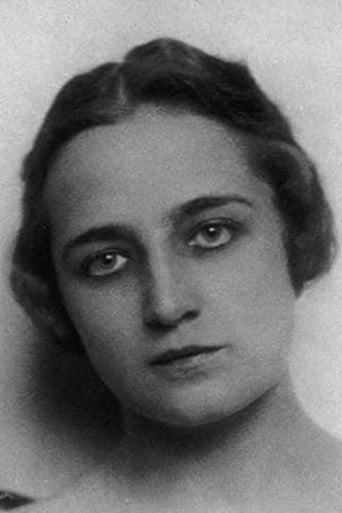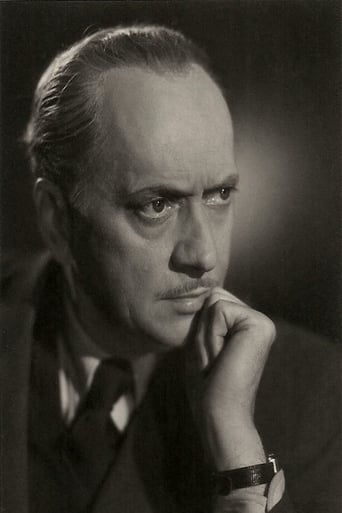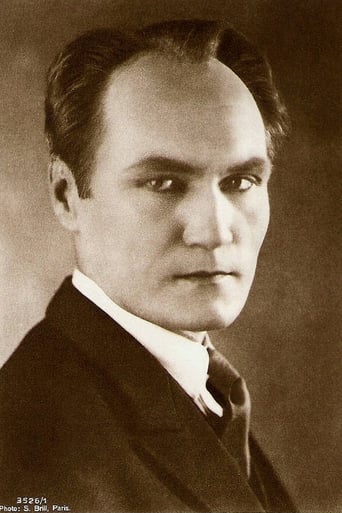Hellen
I like the storyline of this show,it attract me so much
Plantiana
Yawn. Poorly Filmed Snooze Fest.
NekoHomey
Purely Joyful Movie!
Gurlyndrobb
While it doesn't offer any answers, it both thrills and makes you think.
lasttimeisaw
At the age of 34, Fritz Lang astonished the world with his grandiose silent adaptation of THE SONG OF THE NIBELUNGS, a monumental poem written around AD 1200, is extolled as the pioneer of epic cinema, divided into two parts, each comprises 7 cantos and runs over 2 hours in their integral restored versions, it is an awestruck experience to behold early cinema's most enterprising saga compounded heroism and romance with deception, jealousy, undiminished hatred and bloodletting revenge.The first part SIEGFRIED starts as a myth-abounded adventure of our hero Siegfried (Richter), who masters the art of sword-forging and is misguided to a dangerous route to win the heart of Kriemhild (Schön), the princess of Burgundy, en route he slays a dragon (a prototype puppet model looks formidable but moves too ungainly to call it as a monster) and acquires the invincibility from bathing in its blood (save for one spot, his Achilles heel); defeats Alberich (John), king of the dwarfs, takes possession of a magic net powered with invisibility and transformation, as well as the Nibelungs treasure. Sequently, a quid pro quo is achieved between Siegfried and King Gunther (Loos), Kriemhild's brother, Siegfried uses his mighty strength and the little help of his invincibility, to help Gunther conquers Brunhild (Ralph), the powerful queen of Iceland, in a threefold strength competition, and we are pleasantly to see a double-wedding, Gunther and Brunhild, Siegfried and Kriemhild. This is where the surreal side of the tale reaches its crest with Lang's groundbreaking cinematic wizardry.From then on, an inauspicious plot of Greek tragedy looms large, our hero will unwittingly succumb to his demise owing to the coalescence of a pompous queen's vengeful lie, a weak king's low self- esteem and blind enviousness, and a wide-eyed wife's inconceivable gullibility, the first half of the tale finishes with a big bang of pathos.In KRIEMHILD'S REVENGE, the fantasy element has been completely abandoned, it focuses on Kriemhild's iron-willed commitment to avenge Siegfried, she agrees to marry the Hunnish King Etzel (Klein-Rogge), and gives birth to a boy, then invites Gunther and co. to celebrate summer solstice in King Etzel's hall, meanwhile secretly plots the ultimate revenge on Hagen of Tronje (Schlettow), Gunther's adviser who personally sets up the ambush and dispatches Siegfried. In sharping contrast between Burgundian's fantastically make-believe Celtic fashion and Huns' barbarian style with grotesque garments and unsightly makeup, a tangy whiff of racial supremacy is self-evident, King Etzel is dutifully portrayed as a weakling, wailing over his infant son, but cannot fight in the front-line, a shocking contradiction to his savage appearance. The battle is elongated in spite of the multitude of Huns, Gunther and his brothers refuse to give up on Hagen in exchange of their lives, subconsciously they are all guilty for the conspiracy, they are willing to fight until the last man standing. Besieged in the king's hall, the remaining Burgundians will face their doom in a staggering conflagration, tremendous manpower has been deployed for the arduous ending, no wonder it was such a mammoth sensation when it came out!In retrospective, these two films are par excellence in its imposing production design and advanced special effect grandeur, Huppertz's guiding score is a masterwork of its own vitality, yet, the laggard pace can unfortunately hold many contemporary audience at bay, which cannot be rescued for the archaic and stilted performance, although Margarete Schön is excellent in the second part where her facial expressions fully take charge in the lengthy narrative. Among Fritz Lang's superlative filmography, a defining note is that DIE NIBELUNGEN saga opportunely prefigures his most stylish endeavour METROPOLIS (1927), and his most well-grounded masterpiece M (1931), while its own heritage should also be set in stone, even just for historical reasons.
Horst in Translation (filmreviews@web.de)
"Die Nibelungen: Kriemhilds Rache" is a 131-minute movie (in the version I saw) and it came out in 1924, over 90 years ago. Writer is Thea von Harbou, director is Fritz Lang, the same duo that made the legendary "Metropolis" 3 years later. Their work here is again a black-and-white (gold-and-white actually) silent film that is fairly known and among the better known movies from the 1920s too. It is the second installment of the Nibelungen saga after the focus on Siegfried in the first. And as with Reinl's work from the 1960s, I must say I always find the Siegfried part more interesting. One reason are the dragon fights sequences. However, this is not a failure we have here. The battle scenes are decent, costumes and set decorations are pretty nice too. It's just for me very personally that I cannot really develop any interest Kriemhild's revenge story. Overacting, as usual in those silent films, is sometimes present too, but it's bearable in here. Intertitles could have been a bit more for my taste to better understand the story in detail, but at least it's not hardly any like in other works from that time. Cast is fine mostly, Rudolf Klein-Rogge is probably the most known member. All in all, due to my personal preferences, I did not really enjoy the watch. Also too long in my opinion, maybe 90-100 minutes would have been more appropriate. Not recommended
manuelu
This film portrays revenge on an operatic scale. But do not confuse with Wagner's opera Das Ring des Nibelungen. Although both the film and Wagner's opera are based on related Norse and Icelandic sagas, Wagner devotes attention to Brünnhilde's reaction to the death of Siegfried rather than on Siegfried's widow Gutrune's (i.e. Kriemhilde's) reaction to the murder of the hero. Both the film and the opera are romantic in style. But unlike the 19th century opera, the film has elements of early 20th-century German expressionism. Everything about this film is perfect. The acting is over the top, as it needs to be. The sets are sublime. The crowd scenes are powerful. Imagine a film where the heroine makes Attlla the Hun (Etzel) seem like a reasonable, sympathetic host.
zetes
In some ways, The Wrath of Kriemhild surpasses Siegfried's Death, but it also loses some of that film's greatness. The plot of this one is more cohesive than the first, which is quite amazing. The second half of the actual poem is a lot sloppier and a lot harder to tread through, until, that is, you get to the climactic battle scenes; only the Iliad's are better. Lang and Harbou embellished the Huns. The poet-compiler of the Nibelungenlied didn't know a Hun from his right ball, and as a result they are, more or less, the same as the Burgundians in custom. For example, although the poet clearly describes Etzel as a heathen (which is Kriemhild's main concern as Rudiger tries to persuade her to marry him), when she gets to Hunland, the first thing she does is go to mass. The Huns here are clearly heathens; they're almost like caveman. The depiction of them is hilarious, especially Verbal, the jester, who has two marvelous scenes. Etzel's character has been given more weight. He is much more formidable. All he does is bemoan his fate in the original poem. Lang and Harbou are masterful at building suspense, especially at the banquet scene, which is intercut with Verbal's second performance to an amazing effect. However, as is the nature of this half of the poem, the film's amazing technical accomplishments are missing in this one, for the most part, except for a dazzling sequence where Etzel's hall burns down with the Nibelungs inside. The one thing I do have to object to is the way Harbou changes the ending. SPOILERS: in the poem, after Hildebrand captures Hagen and Gunther, they are imprisoned. Kriemhild visits Hagen in his cell and demands that he reveal where he has hidden the horde. He refuses and she herself decapitates her brother. When Hagen still refuses, she decapitates him. Hildebrand (or possibly Dietrich) is so disgusted that a woman would presume to murder a great warrior that he, in turn, decapitates her, calling her a "Devil Woman". Etzel, who is much weaker in the poem than he is here, says something silly like: "Ah me!" I can understand why they would want to keep a unity of time and place as Hildebrand brings them from the castle; to retain the prison settings of the two deaths would make the film very anticlimactic. I also understand why they didn't have Hildebrand kill Kriemhild: his character is much reduced here; his name is only mentioned once. But, to have Kriemhild kill herself, adopting Brynhild's death from the Icelandic sources, is just catering to the audience instead of challenging them. The point of the poem is that Kriemhild's wrath goes far beyond it should into the realm of pure evil. Here, we simply have her die for her lost love. It's not as interesting.





